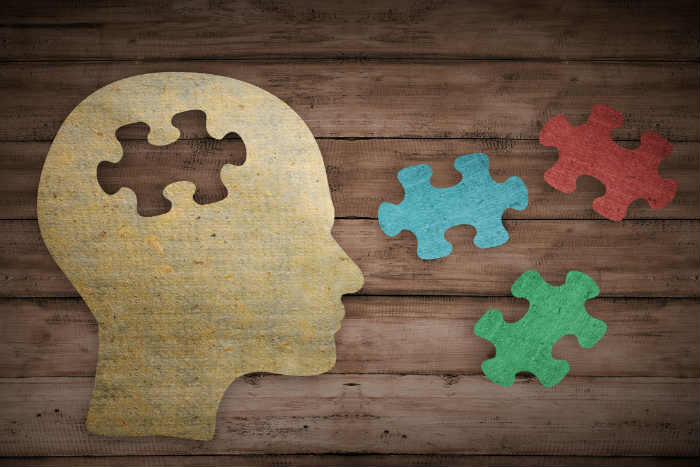











Scientists have been studying how human memory works for years to figure out how memories are stored short and long-term and what the functions and purpose of memory storage are. When we think of memory we think of how our own experiences in life get stored in our brains and how those memories of the past affect our lives in the future.

This is what scientists call episodic memory, a specific and personal memory that helps us understand the world when we are reminded of it. Examples of this would be a memory of your first date with your partner, remembering the color of your shirt on your first day of school, or being reminded of something your mom or dad always told you.
These memories can help you to remember how you became the person you are and trigger different feelings as they are more connected to the emotional centers of our brain.
Semantic memory is a type of long-term memory that refers to the storage and retrieval of factual information, concepts, and meanings of words. Think of it as your mental encyclopedia, filled with all the knowledge about the world that you’ve accumulated over time. This includes everything from knowing Paris is the capital of France to understanding gravity.
Semantic memory is a form of explicit memory meaning it requires deliberate and effortful recall. It’s what allows us to understand language, recognize objects, and navigate our daily lives with a wealth of general knowledge at our disposal.
The concept of semantic memory was first introduced by Endel Tulving in 1972. Tulving proposed that semantic memory consists of various subtypes of knowledge, including general and personal semantic memory. Tulving proposed that semantic memory is separate from episodic memory which is the recall of specific events and experiences. This idea opened up new areas of research and many studies have since explored the nature of semantic memory, its relationship with episodic memory, and its neural basis (Tulving, 1986).
Research has shown over the years that semantic memory is a complex and multi-faceted concept and plays a big role in our ability to understand and interact with the world around us. This body of work has helped us understand how we store and retrieve general knowledge and how these processes are essential for everyday living.
Some conditions present as a decline of a person’s semantic memory abilities and can affect their ability to do everyday tasks. Children who struggle with developing semantic memories may have learning disorders or other cognitive difficulties that prevent them from showing an understanding of what they’re learning. Older adults can also start to struggle with semantic memory recognition when they’re experiencing dementia or another degenerative disease that affects memory storage and can cause adults to forget how to do many everyday things.
While episodic memories are stored as a result of things happening in a person’s life, semantic memories are stored after consistent repetition and practice of certain actions or skills. This can be internalized visually, by seeing the same thing repeatedly, acoustically, by hearing things over and over, or by connecting meaning to something in some other way. When someone struggles with semantic memory storage they need to practice using cognitive strategies to help them strengthen this part of their brain.
Strategies to do this involve tasks like writing things down, saying them out loud, or practicing something repeatedly until you can do it without thinking about it. Everyone has different ways of retaining information and storing it in memory based on their cognitive strengths; for example, one person may have more visual recognition strength, while someone else may have more acoustic or auditory recognition ability. Finding the way your mind stores semantic memory can help you develop strategies to retain important information for your life.
Semantic memory plays a pivotal role in learning and education, as it allows us to retrieve and use previously learned information to understand new concepts. When we encounter new information, we rely on our existing semantic knowledge to make sense of it and integrate it into our mental framework.
For instance, learning a new language heavily depends on semantic memory. It helps us grasp word meanings, grammatical structures, and linguistic conventions. Similarly, when learning new concepts in subjects like science or history, we draw on our existing knowledge to make connections and build new understanding.
In educational settings, semantic memory is crucial for effective teaching and learning. Teachers can leverage semantic memory to help students link new information with what they already know, fostering deeper understanding and retention. Techniques like concept mapping and semantic networking can be particularly effective, as they help students organize and retrieve information more efficiently.
Overall, semantic memory is a vital component of human cognition, extending far beyond mere memory research. Its role in education, communication, and decision-making underscores its importance in our daily lives. By understanding and harnessing the power of semantic memory, we can enhance learning outcomes and improve our ability to navigate the world.
Understanding how semantic memory works has been the subject of many theories and models. One of the most well-known is the semantic network theory which suggests that our knowledge is stored in a network of interconnected nodes. Each node represents a concept or word and the links between them represent the relationships. For example, the concept of “dog” might be linked to “animal”, “pet” and “bark”.
Another theory is the feature-based model which suggests that semantic information is stored in terms of features or attributes that define the meaning of words and concepts. For example the concept of “bird” might include features like “has wings”, “can fly” and “lays eggs”. These theories provide us with frameworks to understand how semantic processing occurs and how we store and retrieve semantic information.
Semantic network theory proposes that our semantic memory is organized like a web of interconnected nodes, where each node represents a concept or piece of information. Imagine it as a mental map where each point is linked to others by various relationships, such as synonyms, antonyms, or categories. For instance, the concept of “dog” might be connected to “animal,” “pet,” and “bark.”
One of the fascinating aspects of this theory is the idea of spreading activation. When you think of a word or concept, it activates the corresponding node in your mental network. This activation then spreads to related nodes, making it easier to access connected information. For example, if someone mentions “dog,” your brain might also bring up related concepts like “bone,” “leash,” and “puppy.”
This theory has been instrumental in understanding how we organize and retrieve information from our semantic memory. It has applications in various fields, including language processing, decision-making, and problem-solving. By understanding how our semantic networks function, we can better appreciate the complexity and efficiency of our memory systems.
Semantic memory is supported by a network of brain regions each playing a unique role in storing and retrieving information. The temporal lobes particularly the left inferior temporal gyrus are critical for the storage and retrieval of semantic information. This area helps us to recognize and name objects, understand language, and recall facts.
Damage to particular brain regions can result in category-specific semantic deficits, affecting the ability to retrieve information from specific categories, such as animals or tools.
The parietal lobes especially the left inferior parietal lobule are involved in processing semantic information and retrieving semantic memories. They help us to integrate different types of information and make sense of the world around us.
The frontal lobes particularly the left prefrontal cortex are responsible for the executive control of semantic memory. This means they help us to plan, organize, and retrieve semantic information efficiently. Together these brain regions form a complex network that enables us to store and access our vast bank of general knowledge.
Semantic memory disorders are conditions that impair the ability to retrieve and use semantic information. These disorders can arise from various causes, including brain damage, neurological diseases, or developmental issues.
One well-known semantic memory disorder is semantic dementia, a type of frontotemporal dementia. Individuals with semantic dementia often struggle to recall the names of objects, understand word meanings, and use language effectively. For example, they might see a picture of a dog but be unable to name it or describe its characteristics.
Another type of semantic memory disorder is category-specific semantic deficit. This condition affects the ability to retrieve information from specific categories, such as animals or tools. It often results from damage to particular brain regions, like the temporal lobe. For instance, a person with this deficit might recognize a hammer but be unable to name different types of animals.
These disorders can significantly impact daily life, affecting communication, problem-solving, and decision-making. Understanding the causes and mechanisms behind these disorders is crucial for developing effective treatments and interventions, helping individuals manage their symptoms, and improving their quality of life.
Semantic memory is essential for us to understand, navigate, and function in the world. It allows us to store and retrieve general knowledge from language to everyday tasks and provides a mental foundation for our daily lives. Unlike episodic memory which is tied to personal experiences, semantic memory, including personal semantic memory, is more objective and often built through repetition and practice.
The interplay between episodic and semantic memory shows how our personal experiences contribute to general knowledge and how our understanding grows over time. But disruptions in semantic memory whether due to developmental challenges or neurodegenerative conditions can severely impact a person’s ability to manage daily tasks. Fortunately, cognitive strategies and professional guidance can help improve semantic memory retention and retrieval.
In short semantic memory is more than just a store of facts; it’s the foundation of human learning and interaction and for personal growth and happiness.
Sources: